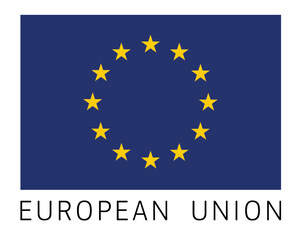Regulators in the EU and U.S. Call upon International Oil and Gas Companies to Raise Global Safety Standards
WASHINGTON, July 16, 2013 /PRNewswire/ -- Just days before European rules on offshore safety for European companies abroad enter into force, and just a few months before additional requirements for companies operating in U.S. waters take effect, the European Commissioner for Energy, Guenther Oettinger, has called for operating and drilling companies to deliver the highest standards including when operating outside of American and European regulated waters.
At the time of his visit to Washington, DC, on July 16, Commissioner Oettinger said that the path to a strong and reliable culture of offshore safety depends upon global companies operating to the highest standards. Offshore accidents around the world continue to involve American and European companies. This places the spotlight on the global companies – who have done much to improve standards since Macondo – to give leadership to safety wherever they operate, and where the U.S. and EU rules do not apply.
"Under separate arrangements coming into force this year in Europe and the U.S., national regulators will exercise additional vigilance over oil and gas companies to ensure they accelerate the advances in technology and human understanding achieved since Macondo, whilst exercising stringent control of risks of major accidents at all times," said Commissioner Oettinger.
"We call upon oil and gas companies and drilling contractors operating in European Union waters to respond to the challenge to their leadership in global safety and environmental protection. We call on them to exert their influence to see a rise in standards both rapidly and permanently, and to ensure the transparency of that achievement. Beginning without delay, we hope to see full and rigorous disclosure of safety data by all companies in the international industry associations' reports."
Commissioner Oettinger concluded: "Our colleagues in the U.S. Department of the Interior have reaffirmed the value of the long-standing cooperation between offshore regulators in Europe and the USA in securing the transparently highest levels of safety in the offshore oil and gas industry. On Thursday, I will meet with the leaders of the offshore industry in Houston, and I look forward to hearing their views on what more is to be done to reassure people everywhere that the safety lessons of Macondo – and indeed the legacy of Piper Alpha - are truly and visibly embedded wherever our companies operate."
Background
Three years ago the world reflected on offshore safety and pollution following the Macondo disaster which was the cause of 11 deaths and the United States' worst ever pollution event. Two weeks ago saw the 25th anniversary of the world's worst fatal offshore disaster on the UK's Piper Alpha platform, in which 167 workers and rescuers were killed.
Following Macondo, the United States government and the European Union conducted major investigations of safety levels in their offshore waters and it became apparent that the underlying drivers of major accident risk exist everywhere – no country possessed all the necessary arrangements to secure best industry practices. In addition, many of the accidents and narrow near-misses of the past years have involved American and European companies around the world.
The U.S. reorganized its regulatory safety and environmental agencies in the DoI to ensure their rigor and independence. It has also amended safety rules in the light of the Macondo disaster and mandated a safety and environmental management system (SEMS) which all operators must adopt. The industry has established the Center for Offshore Safety in Houston to support the verification of SEMS practices. The first round of verification of SEMS assessments is due in November this year.
On July 18, new legislation enters into force in the European Union to ensure global best safety practices by industry and regulators are implemented across all active offshore regions in Europe. Oil and gas operators and rig owners are required to prepare safety cases for preventing major accidents and their environmental consequences, which are acceptable to the regulatory agency in each country. European companies involved in major accidents overseas will be required to report the circumstances to their country of domicile. Any operator or rig owner working in European waters will have their corporate global safety policy scrutinized by the regulator.
The London based International Association of Oil and Gas Producers (OGP) and the Houston based global association for drilling contractors, IADC, operate voluntary safety and environmental damage reporting schemes. Not all member companies choose to report their accidents and this contributes to difficulties in tracking global safety performance of the industry and fuels claims of a lack of transparency in the industry.
The United States and Europe's North Sea countries have collaborated on the issue of offshore safety for some time. Both are founder members of the International Regulators Forum established nearly 20 years ago. Commission officials and the DoI's offshore regulatory agencies (Bureau of Safety and Environmental Enforcement, BSEE; and Bureau of Ocean Energy Management, BOEM) have also met several times to exchange information on post-Macondo regulatory developments. In 2012, the European Commission, the executive arm of the European Union, established a standing group of regulatory officials from across Europe to advise on regulatory policy-making and to ensure lessons are learned from major accidents.
***
Delegation of the European Union to the United States
2175 K Street (entrance from 22nd Street), NW, Washington, DC 20037
www.EUintheUS.org & @EUintheUS
SOURCE Delegation of the European Union to the United States
WANT YOUR COMPANY'S NEWS FEATURED ON PRNEWSWIRE.COM?
Newsrooms &
Influencers
Digital Media
Outlets
Journalists
Opted In





Share this article